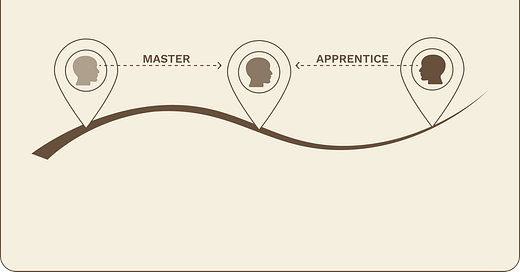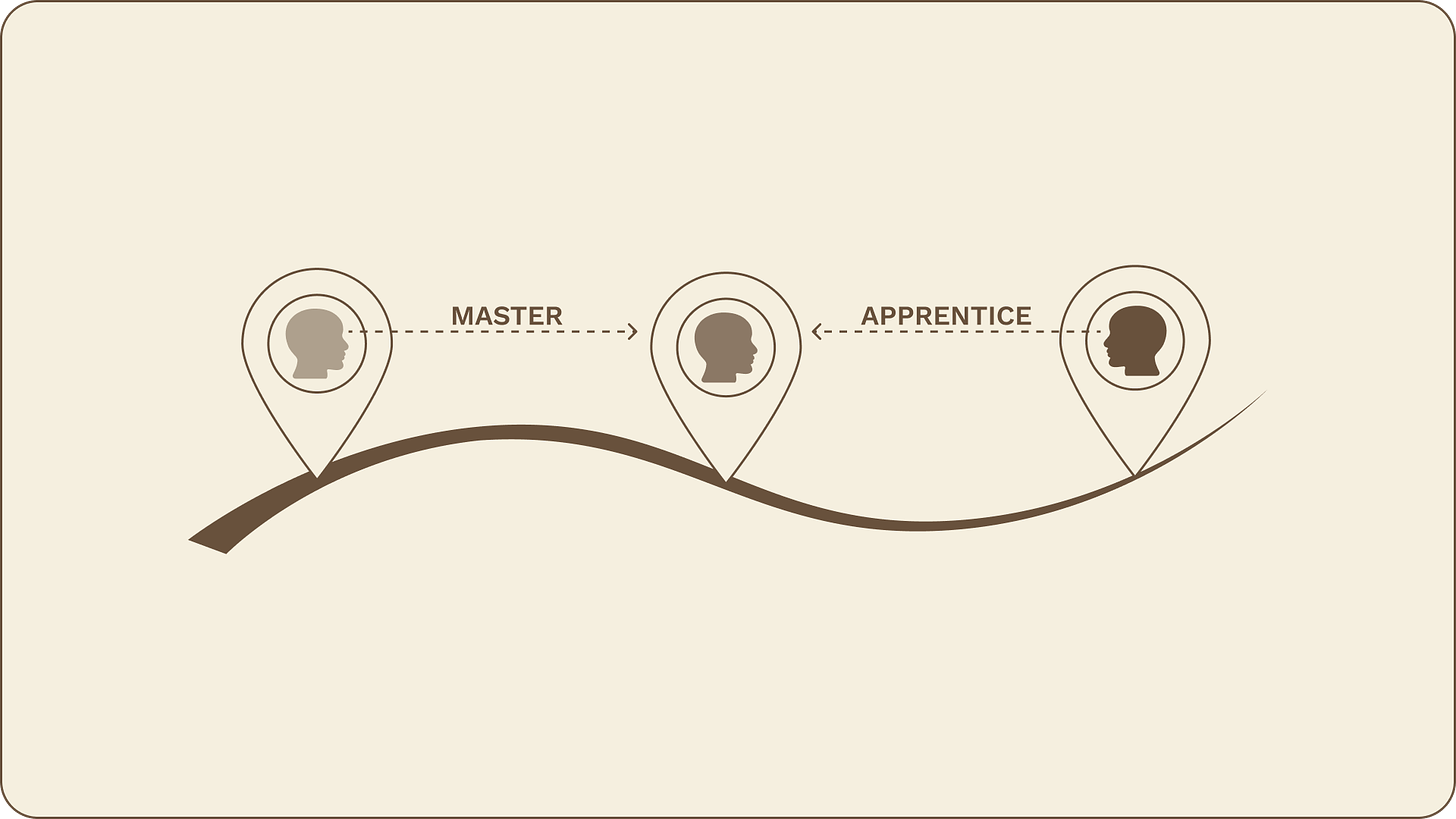“We are all apprentices in a craft where no one ever becomes a master.” — Ernest Hemingway
You are a master of what is known... what is understood.
But you are an apprentice of all else.
I was struck by this truth while reviewing the progress of athletes I coach. They have come so far, yet there is still much to learn. And since many levels of progression remain, these athletes are masters of what they know and apprentices of what they do not.
There is always more to learn in any skill, so the concept of mastery is relative. You are an apprentice to those who have mastered more. You are a master to those who have mastered less.
Those who identify as masters tend to see fewer possibilities than those who identify as apprentices. But the true master knows complete mastery, like perfection, is always just out of reach.
Michelangelo once said, “If people knew how hard I had to work to gain my mastery, it would not seem wonderful at all.” And what were his last words? “I am still learning.”1
It takes countless hours to develop any skill. But when is any skill fully developed? Therein lies the nature of mastery. It is a continuous journey, not a destination.
Witness another strange dichotomy in life: Mastery requires the mindset of a lifelong apprentice. Without this mindset, your journey ends... as does your mastery. For others will forge ahead.
What is the mindset of the lifelong apprentice?
The path of mastery has no end.
Be a master to the apprentices behind you.
Be an apprentice to the masters ahead of you.
When you alone remain, life becomes the master.
Mastery is not some prize to be won and lorded over others. It is the never ending pursuit of something meaningful. It is cherished and constantly tended to.
🤔 Food for Thought:
What are you attempting to master?
What drives you to master such a thing?
Do you see it as a destination or a lifelong journey?
⚙️ One Small Step:
When you have progressed as far as you can in a skill, look to others for inspiration. What are their habits and systems? What is their value system? What is their mindset? What can you incorporate to level up?
Some believe the “I am still learning” quote is misattributed to Michelangelo. But how could such a model of mastery not have believed this to be true? Was he not developing his many crafts to the end?




